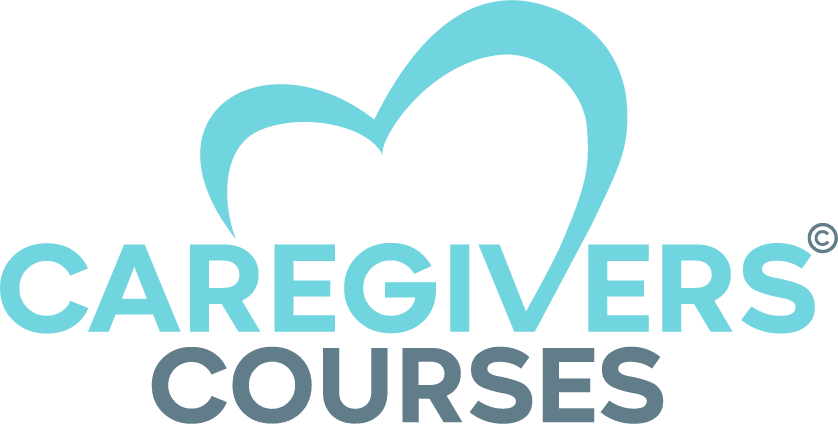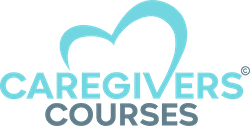Whether you’re a seasoned caregiver or looking to get your start in the industry, finding the proper caregiver training is a must. Quality caregiver training will equip you to provide better patient care, enhance your skills, and give you the tools necessary to advance in your chosen field. But finding the right training can be daunting, especially when there are thousands of options to choose from.
This guide is designed to help you navigate the selection process and determine which program is best for you. But first, let’s take a moment to explore the benefits of ongoing caregiver training.
The Benefits of Ongoing Caregiver Training
Even if you’ve already met the minimum training requirements for your state, ongoing training will help to set you up for long-term success and advancement. Here are just a few of the key benefits that excess training can offer.
- Standing out from the competition. Pursuing further certifications and training is a great way to flesh out your resume and set yourself apart from other applicants in a competitive job market. With the right certifications under your belt, you will be able to further demonstrate your skill level, dedication to your field, and willingness to stay up to date with your working knowledge.
- Providing better patient care. The right training can provide you with the necessary tools to give your patients the best care possible. Relevant resources will include current tips, tricks, and strategies to help you become more efficient and effective.
- Stay Up-to-Date with Industry Advancements. Modern training modules will keep you current with relevant industry advancements, as well as allow you to learn how to operate new technology effectively. In an ever-advancing industry, this is one of the best ways to ensure you don’t fall behind the curve and continue to qualify for top positions.
- Increase Upward Mobility Potential. Obtaining new certifications is a great way to increase your value to your current employer. It can also make a huge difference to upper management when they are making decisions on who to promote.
As you can see, ongoing training is one of the most effective ways to increase your value as a care professional. It allows you to expand your current skillset quickly and effectively while providing a great addition to your resume. But how do you pick the right caregiver training? First, you need to start by determining your needs.
Determining Your Needs
While different states may set different standards for the minimum education required for caregivers, many do not require formal training for entry-level in-home positions. Make sure you are compliant with all state and federal certification processes for your position by carefully researching the requirements for your state. If you have not met the minimum requirements start by finding a program that will offer you the necessary certifications. Once you have done that, it’s time to determine what further resources will be the most beneficial to you.
Start by asking yourself the following questions.
What is Your Current Level of Experience?
Your current level of experience will be highly influential in determining what caregiver training resources are right for you. For example, a caregiver with 10+ years of experience may be interested in a more advanced level of training. That will require more time, effort, and financing than training for a beginner caregiver looking to get started in the field. Make sure you are taking your short-term career goals and long-term career goals into account while setting your educational plan.
This is also something you should be reevaluating every few years as a caregiver. As you gain more experience you will be able to pursue more advanced levels of training over time, and can even transition into the medical field eventually if that is something that interests you. So be sure to maintain an attitude of continuous improvement, and seek training on an ongoing basis.
What Position Are You Hoping to Obtain?
Many seasoned caregivers are interested in obtaining the proper certifications to become specialists within a certain discipline. If that’s you, then the resources you are looking for will be very different than the resources recommended to someone who is simply looking to get their start in the industry. But first, you will need to determine what your long-term goals are for your careers.
To identify what trajectory you’re interested in taking, start by asking yourself the following questions.
- Are you interested in pursuing a specific caregiving discipline like dementia care or hospice that will require specialized training?
- Are you considering pursuing an advanced title such as a Home Health Aide, Certified Nursing Assistant, or Registered Nurse?
- Do you feel confident that your current level of training has prepared you for your active role, or do you feel that you need a refresher on certain key elements of the job?
- Within the next five years, what income level are you hoping to obtain? What titles could you pursue to achieve that income level? What training would be required?
These questions can help you better determine the trajectory of your career, how your position will impact your income, and what training needs to be completed to get you from point A to point B. Remember, more advanced certifications are also often more expensive and time-consuming to obtain, so ensure that you can dedicate the time necessary to get the most out of your purchase.
What is the Standard for your Industry?
It’s also crucial to consider what is considered standard for your industry within your state. While you may not require any formal training to become a caregiver in some states, there are often unspoken expectations about what sorts of certifications potential employers would want to see. You can determine this by consulting hiring managers or current employees that work within your industry, and seeing what organizations and programs they recommend.
Once you have achieved such credentials, ensure that you properly list them on your resumes, job applications, and LinkedIn profile to ensure that recruiters within your industry can see your achievement. Be sure to share your accomplishments with your current employer as well during your performance reviews to get the most out of your added experience. Also, check out our blog and insights on how to find caregiver jobs the right way.
Finding the Right Program
Once you have determined what level of training you should acquire, it’s time to pick a program. Programs can vary greatly in price, content, and extensiveness – so it’s important to consider your options carefully, starting with the price.
Research Programs with Different Price Points
Depending on your needs, you might have a lot of options when it comes to selecting a program. Sometimes that means that you will have a wide range of prices to consider. You may be tempted to purchase the most expensive modules to ensure that your choice is of good quality, or you may select the cheapest to save a bit of cash. However, it’s important to remember that the price of the training doesn’t determine the value of the resource – its industry perception does.
Think about it this way. Is an employer going to be more impressed by a certification from an unknown organization that costs $1,000 to obtain – or a well-respected organization that costs $150 to obtain? Of course, the employer is going to favor reputable training over expensive training. On the other hand, an employer will also not respect a $10 certification obtained from a dubious source. So always remember to consider your options carefully before you make your decision based on pricing, and find a happy middle ground before buying.
Look at Reviews
Reviews are an excellent way to determine the value of a resource. While it is true that reviews on public sites can sometimes contain false testimonies, that shouldn’t stop you from using them to make your final purchasing decision. Past buyers will usually be able to give you a fair indication of how helpful the training was and what opportunities it has opened up for them.
While every course is bound to have a few negative reviews, no matter how effective it is, a high percentage of negative reviews is usually a red flag. This is especially true if the negative reviews share similar complaints. The same can also be said for positive reviews, which should also share key continuities.
For example, while one negative review about a poor instructor could be chalked up to one user’s unfair assessment, five raising the same concern could be a reason to avoid that course. Likewise, if several positive reviews all state that the caregiver training in question led to the reviewer getting a raise, that is a good indicator that the program is of sound quality.
Check for Validity
In the digital age, it can be difficult to differentiate a scam from a great opportunity. That’s why it’s vital to carefully research any program you would be using before purchasing it, especially if it’s online. You can do this by cross-referencing the issuing organization with relevant industry websites, and seeing how well-respected the organization is within the caregiver training community.
When it comes to validity, it’s always better to be safe than sorry. If you suspect that an organization may not be trustworthy, it’s always best to play it safe and look for other options. If you have good reason to suspect that you may have been illegally sold an illegitimate program, we encourage you to reach out to the relevant fraud departments within your state to report the issuing organization.
Look for Programs that Offer Certifications
Many training courses offer certifications at the end. These can range from simple CPR certifications to more niche certifications. Check with other professionals within your industry to see which certifications are considered the most appealing to employers.
Remember, many certifications require maintenance over time. Make sure that you keep a record of the date that any relevant credentials will be expiring, and renew them in a timely fashion to continue staying current. This is especially important regarding any certifications you may have received to meet your state’s minimum caregiver training requirements.
Things to Keep in Mind
Once you have selected the best course for you, it’s time to get started. Here are a few things to keep in mind before starting your caregiver training.
- Check for any time limits. Many courses have a set amount of time for you to complete the program. If you fall outside of this window, you may have to start over or renew your subscription. Complete courses quickly and completely to ensure that you are receiving the best value for your dollar.
- Be aware of testing limits. Some courses have an exam at the end before you can receive your certification. Often these exams have testing limits, which can prevent you from taking the test too many times within a certain period. If you fail an exam too many times, some organizations may make you wait six months to a year or may bar you from taking the test again at all. Be sure that you are aware of these stipulations, and take the appropriate amount of time to study for your assessments.
- Keep multiple copies of your documents. Once you complete a course, you should save your associated documents in multiple places. We recommend that you save all certifications as a digital document in at least two secure (password-protected) locations, with one being accessible through the Internet. We also recommend printing your certificates and keeping them in an easy-to-access location. This will ensure that your documents will be safe and available, even if you move, lose the original copy, or have issues with your primary devices.
Buy From the Best
If you’re still unsure of where to start, then you’re in the right place. Here at Caregiver Courses, we believe in the life-changing power of compassionate care. We’re dedicated to elevating standards within the industry through valuable, affordable education that supports professionals as they seek to provide the best possible care to their patients.
Our training is perfect for beginners and seasoned care professionals alike, with modules designed to provide valuable information quickly, effectively, and affordably. We provide family caregiving medical certifications for basics, like CPR, as well as more advanced courses on dementia care, infectious disease control, and more.
Whether you are interested in learning the best way to assist a loved one or are starting a new career in the care industry – there’s no better place to get started. Click to see a list of our caregiver certification courses, and see which package is right for you.


![Self-Care for Caregivers [Tips from Experts]](https://caregivercourses.net/wp-content/uploads/2024/07/Self-Care-for-Caregivers-Tips-from-Experts-300x169.jpg)


